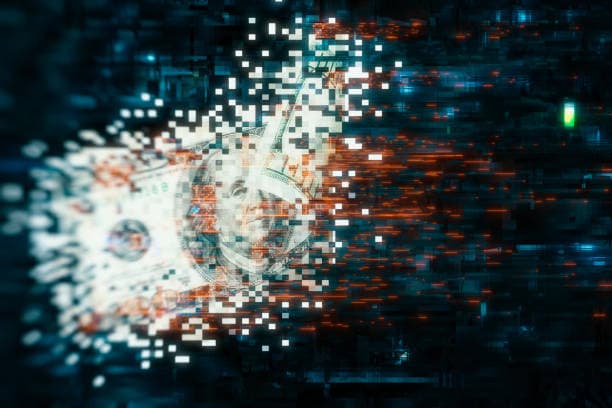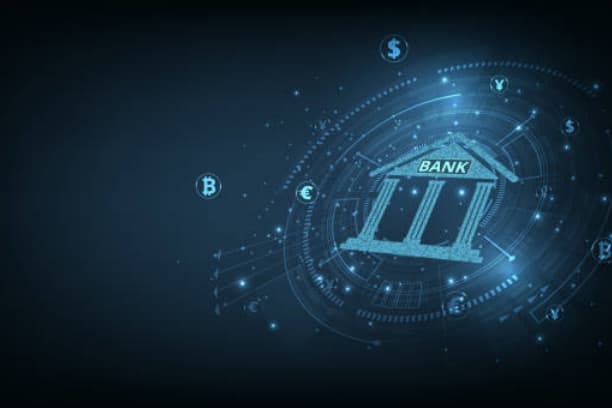OpenSea is one of the world's leading NFT trading platforms, providing a decentralized market environment. In this article, we will delve into whether the OpenSea platform is truly decentralized and fully analyze its functional features. By dismantling the working mechanism of the platform, it will help readers understand how OpenSea provides users with a seamless and secure NFT trading experience with blockchain technology support.

Introduction to OpenSea: A Decentralized Marketplace Platform
OpenSea is a decentralized NFT (non-homogenized token) marketplace platform founded in 2017 that has quickly become one of the largest NFT trading platforms in the world. By supporting multiple blockchains, OpenSea provides a space for digital asset enthusiasts to trade, showcase and collect NFTs. Transactions on the platform involve various types of digital assets, such as artwork, game props, domain names, and more.
Can we call OpenSea a "decentralized platform"? To answer this question, we need to understand what the concept of "decentralization" really means. In the blockchain world, "decentralized" means that there is no single controlling organization or server, and all transaction records and asset information are stored on the blockchain, maintained and verified by nodes around the world.
Is OpenSea completely decentralized?
The trading platform offered by OpenSea is not fully decentralized per se, although it relies on blockchain technology to support NFT trading. Its core technology runs on Ether and other blockchains, ensuring that all assets are unique and tamper-proof. However, the platform's operations, interface design, and user experience are still centrally controlled by OpenSea. In other words, although NFT's transaction information is stored decentrally, OpenSea, as a platform, still has its operation and management concentrated in the hands of a few founders.
- Transaction records are decentralized: all transactions are public on the blockchain and cannot be modified or deleted.
- Centralization of platform operations: OpenSea is still managed by the company, which is involved in auditing and operational decisions.
- User Experience Optimization: OpenSea provides rich functionality and interface, but still relies on a centralized server.
OpenSea is a "blockchain-powered decentralized platform", so to speak, but in some ways, it is still controlled by the platform operator.
OpenSea Platform Features Explained
As one of the most popular NFT trading platforms available, OpenSea has a range of features that appeal to users, and some of the key features are detailed below:
1. Support for multiple blockchains and NFT formats
One of the most attractive aspects of OpenSea is that it supports multiple blockchain platforms such as Ether, Polygon, Klaytn, etc. This allows users on different blockchains to conduct transactions on one platform. This allows users on different blockchains to conduct transactions on a single platform.OpenSea supports a wide range of NFT formats, including common standards such as ERC-721 and ERC-1155, making it easy for users to conduct cross-chain transactions.
2. Diversified NFT trading functions
OpenSea provides a versatile trading interface that allows users to easily buy, sell, or auction NFTs.The platform supports a variety of trading models, such as:
- Instant Purchase: Users can purchase NFTs immediately based on a fixed price.
- Auction: Users can set the starting price of NFT and the duration of the auction, while others can bid for it.
- Pricing: Users can adjust NFT prices according to market demand.
OpenSea also supports the creation of "collections" that allow users to group multiple NFTs together for unified presentation and management.
3. Security and decentralized payments
While OpenSea itself is not fully decentralized, its transactions are guaranteed to be secure and transparent. all of OpenSea's transaction information is recorded directly on the blockchain, meaning that anyone can access all historical transactions at any time. The platform supports payments via cryptocurrencies such as ETH (ethereum) and other ERC-20 tokens, enhancing the decentralized payment functionality.

For both sides of the transaction, OpenSea also provides more stringent security measures, including 2FA authentication and smart contract security audit, to protect the safety of user funds.
4. Social interaction and display functions
OpenSea also focuses on the construction of social interaction functions, users can view and collect other users' NFTs on the platform. the platform provides personal homepages, social links and message functions, users can display their own collections, post auction information, and share their digital art creations. Social interaction not only enhances the community atmosphere of the platform, but also provides more exposure opportunities for artists and creators.
5. Profit models for creators and developers
OpenSea offers a monetization opportunity for NFT creators and developers. Artists can sell their digital works on OpenSea and earn a profit on the sale. The platform also supports creators in setting up secondary sales commissions, which means that creators will be able to consistently earn a percentage of their work whenever it is resold.
The Future of the OpenSea Platform
Although OpenSea still has room for improvement in terms of decentralization, it has become an important platform in the field of digital art and NFT trading. With the development of blockchain technology and the deepening of the concept of decentralization, OpenSea may gradually move towards complete decentralization.
In the future, OpenSea may introduce more decentralized features, such as decentralized governance (DAO), to enable users to participate in the platform's decision-making. With this OpenSea also needs to make more efforts in compliance, user privacy protection, etc. to adapt to the needs of the global market.
summarize
OpenSea is undoubtedly one of the most popular NFT platforms at the moment, and it has managed to attract a large number of artists, creators, and collectors by combining blockchain technology and diverse transaction features. While it is not completely decentralized, it does a great job of providing decentralized transactions and payments. As technology advances, OpenSea has the potential to further enhance its decentralized nature and become an even more open and transparent platform. For NFT enthusiasts, OpenSea remains a trustworthy digital asset trading platform.







